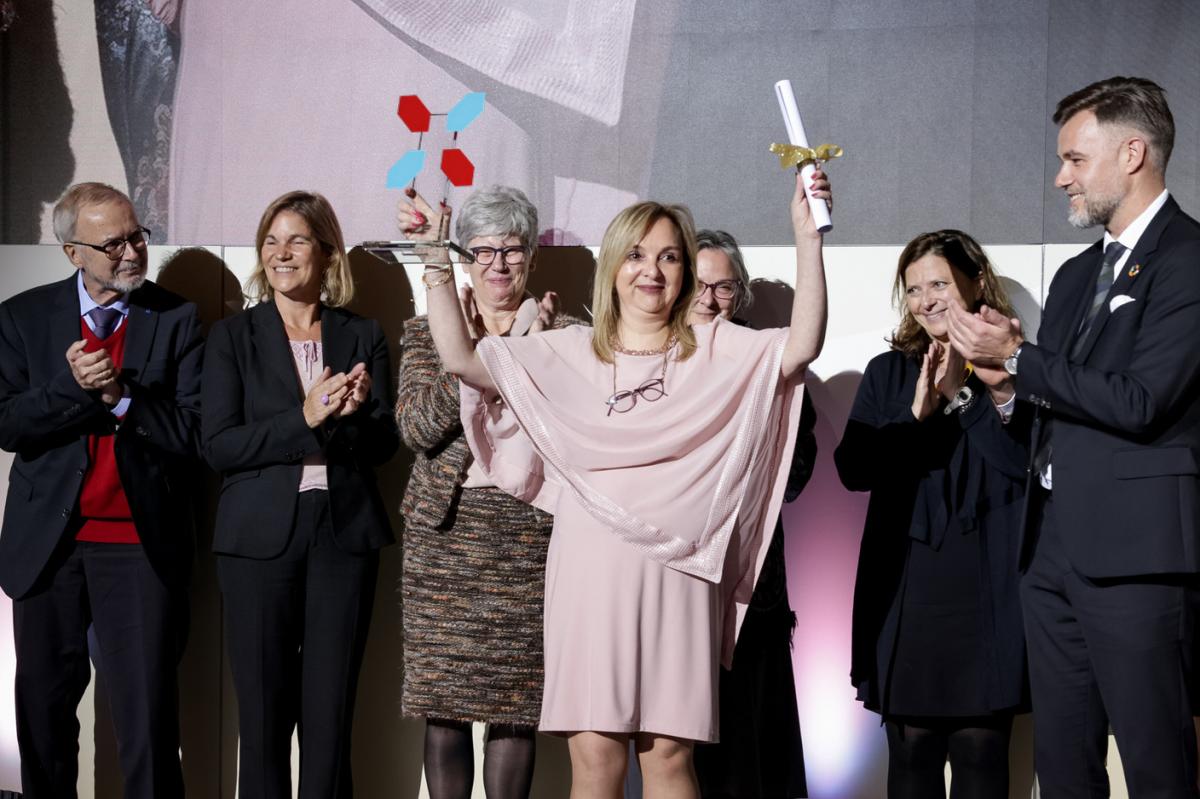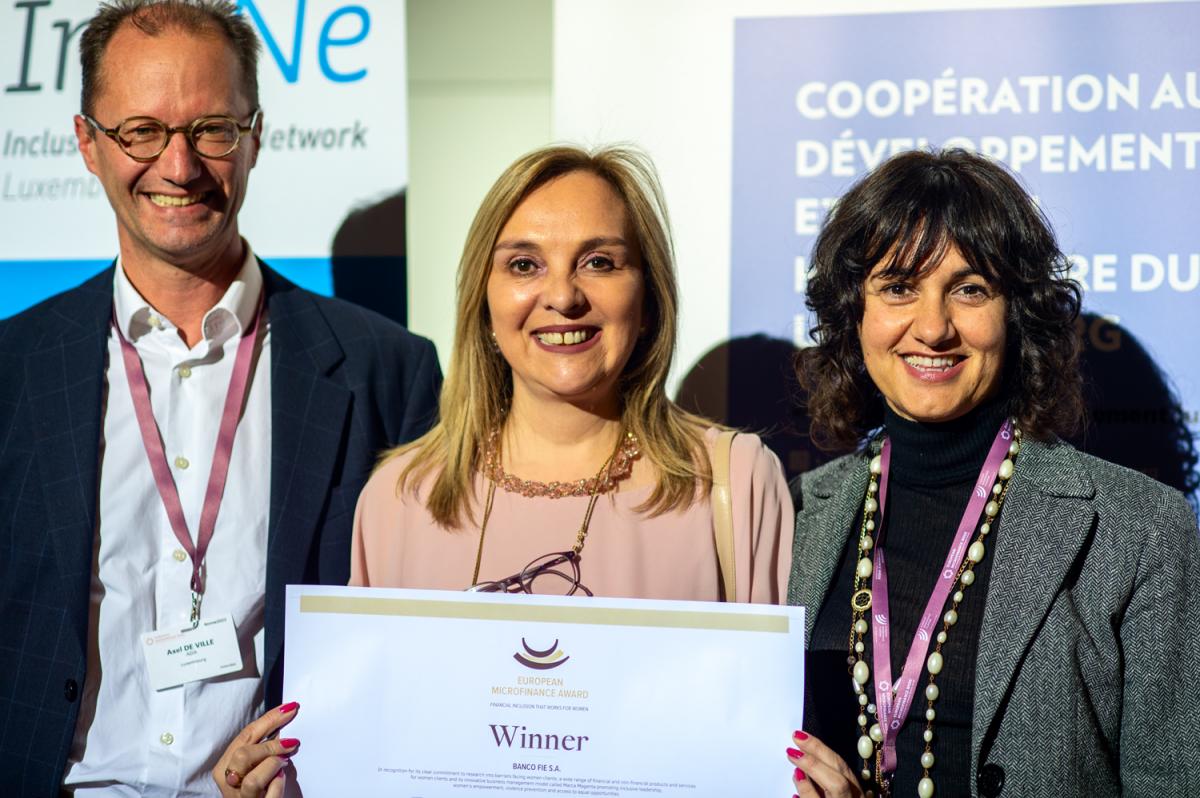
Banco FIE in Bolivia: the story of a small NGO that became an autonomous bank thanks to ADA's support

On 11 May 1994, Mia Adams launched the idea of ADA - "Appui au Développement Autonome" (Support for Independent Development) - a development organisation that would provide support to the poorest individuals so they could make their projects a reality. The NGO FIE in Bolivia was one of the first organisations to receive this support. We take a look back at this collaboration.
ADA's early days weren't easy. The first project, a working capital fund for fishermen, quickly failed because the money for the project was misappropriated by the fishermen themselves. This made ADA aware of the difficulty in working with micro-entrepreneurs. From then on, ADA chose to work through intermediary organisations, microfinance institutions (MFIs) or cooperatives to carry out its projects. At the time, microfinance was still not widely known, especially in Luxembourg. The founder of ADA, Mia Adams, had to work hard to promote her ideas.
ADA's first projects involved bank guarantees
ADA then continued its activities with 300 000 Luxembourgish francs (around EUR 7 500). This wasn't much, so a way had to be found to boost the funds. She began with small projects to raise equity and then moved on to larger projects, such as bank guarantees. Although the idea of guarantees was entirely new, it provided an opportunity to integrate Luxembourgish banks into the microfinance movement and to familiarise less developed partners from the Southern Hemisphere with the local banking sector. Thanks to Luxembourg's Development Cooperation, ADA then launched a pilot project on bank guarantees with four organisations, including the NGO FIE in Bolivia.
FIE in Bolivia, one of the first organisations to benefit from a guarantee
FIE (Fomento Iniciativas Económicas) is an NGO founded in 1985 by five Bolivian women who wanted to help the poorest women in Bolivia. One of the founders, Pilar Ramírez, had an excellent relationship with Mia Adams. Both were visionaries and strongly committed to combating poverty, with a particular focus on economic development and women's empowerment. The bank guarantee project set up by ADA in 1998 provided the NGO with a guarantee of around USD 100 000 to enable it to access external financing and to expand its microcredit offering, mainly in favour of women.
From NGO to MFI status
Upon completion of the project in the 2000s, the unused amount of the guarantee was eventually reinvested to facilitate the NGO's transformation into a regulated MFI, following which FIE evolved into FIE-FFP (Fondo Financiero Privado). In this transformation process, the NGO FIE contributed just over 50% of the initial capital, supplemented by Bolivian private shareholders. It also wanted to bring in a foreign shareholder to give it an international dimension. ADA played this role by taking a symbolic 5% stake in FIE-FFP.
ADA as an important driver of innovation
Beyond this equity investment, ADA fostered relationships between FIE-FFP and impact investors, which was innovative for the time, notably with the Dexia Microcredit Fund created by Banque Internationale à Luxembourg and other European investors, including several funds registered in Luxembourg. During this period, ADA and FIE-FFP also actively collaborated to promote transparency in the inclusive finance sector through projects aimed at encouraging MFIs to obtain financial and social ratings (external assessments).
Lastly, ADA provided training in Luxembourg to build the capacity of MFIs, in which FIE-FFP participated. It also invited the MFI several times to share its experience before a Luxembourgish audience at "Midis de la Microfinance" events.
FIE became an independent organisation
ADA always considered FIE to be a very professional organisation with strong Bolivian roots that managed to reconcile a social objective with an economic viability that enables it to upscale its activities.
After a decade of support, FIE-FFP had grown enormously, eventually obtaining its banking licence in 2010 to offer a wider range of financial services to its target customers, after which it was renamed Banco FIE. At that point, ADA, which now considered Banco FIE to be independent, decided that it was time to exit and sold its entire stake. Banco FIE is a success story that illustrates ADA's strategy of empowering vulnerable populations through trusted partners.
Banco FIE at its peak
Today, Banco FIE offers a comprehensive range of banking services for women, as well as a women-led financial education programme. Internally, it has developed an innovative business model called "Marca Magenta", which aims to empower women, prevent violence and create equal opportunities. Over the years, Banco FIE has also won numerous awards for its microcredit services, transparency and commitment. It is therefore only natural that this year it won the European Microfinance Award for women's financial inclusion. ADA sees Banco FIE's latest award as the culmination of the support it provided at its inception.
"The evolution of the NGO FIE into Banco FIE, winner of the European award, is a good example of how ADA contributes to making its partners more autonomous."
Axel de Ville, Director of Strategy & Innovation at ADA
"ADA has been a shareholder, investor and fundamental ally in the development of FÍE, not only in Bolivia but also in Argentina. ADA was an important partner that put its trust in the founders' project when FÍE was still an NGO. Today, Banco FÍE has an urban and rural portfolio of more than USD 2.2 million and reaches more than 1.2 million clients, including 600,000 women. Since the beginning, ADA and FIE have shared the same social mission: to help the most vulnerable, especially women."
Ximena Behoteguy, President of the Board of Directors of Banco FÍE in Bolivia

©InFiNe.lu

©ADA